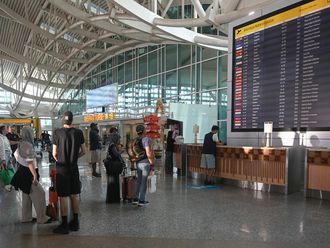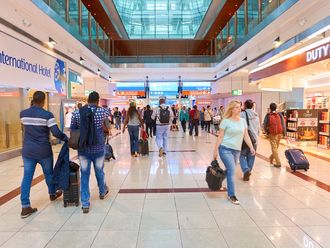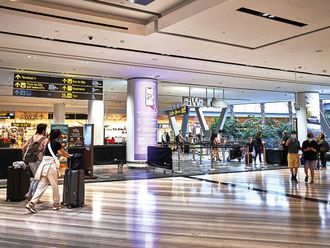Dubai: Battles have been won and lost as global destinations compete to capture the attention of leisure and business travellers.
Now, a relatively new front is opening up in the hospitality industry as destinations seek a share of the lucrative medical tourism market.
As leisure and business travellers are still making do with scrimped budgets, medical tourism is where the big dollars are being spent. This is where Germany and its Oetker Hotel Collection hopes to cash in.
"Germany has become one of the primary health travel destinations in Eur-ope; cost-wise, health care costs are nearly 50 per cent less in Germany than similar procedures, say in the US and Great Britain," said Samir Daqqaq, senior vice-president for Development (Middle East and Africa) at Oetker Hotel Collection.
The Oetker Hotel Collection operates Brenner's Park-Hotel and Spa in the German state of Baden-Baden.
Lately, more GCC residents are being won over by what Germany has to offer, though at this time it is not known exactly how many people use its health care facilities.
Increase
GCC travellers constitute a growing presence in German hotels and in the first five months of the year travellers from the region increased by 16.4 per cent over the same period in 2009.
Brenner's Park, which operates a medical spa, have not lost sight of the statistic, saying the Middle East is one of the latent source markets of patients, with about 20 per cent of health care seekers being from the region. Additionally, UAE residents spend about $2 billion (Dh7.3 billion) in health care travel annually.
"I would say medical tourism continues unabated in spite of economic challenges," said Daqqaq.
"People can cut down on all expenses except medical ones, and in Germany you get the best quality/price equation."
But for Germany to make it as a preferred destination for GCC travellers seeking medical treatment will not be simple. Far East destinations such as Thailand have had a stronger pull on their plans, as has India.
But Germany can still pull its weight by targeting travellers for whom cost is only a secondary consideration.
As such, "medical tourism has much more to do with travelling alone — it is estimated that 40 per cent of medical travellers seek advanced technology, while 32 per cent seek better health care," said Daqqaq. "Another 15 per cent seek faster medical services while only 9 per cent of travellers seek lower costs as their primary consideration. Global insurance companies are including treatments abroad in their networks and providing medical travel insurance, on a case-to-case basis."
There's a lot riding on these numbers. Worldwide, the market for medical tourism is forecast to swell to $100 billion by 2012, based on industry estimates.
Growth would be in the 20 to 30 per cent range, easily outstripping comparable numbers for leisure and business travel. By the end of this year, more than three million people will have travelled for medical reasons.
Other factors are at work to make the situation even more favourable. According to a new report by Deloitte, an ageing population of baby boomers is set to travel more.
Retirement
"The older part of this segment is only just reaching retirement age," the report said.
"The boomers will therefore be a source market for the global tourism industry for several decades and will have the biggest impact when the latter part of the group retires around 2024."
With more disposable income than previous generations, they are also more likely to travel and seek treatments elsewhere.
In the region, Oetker Hotel Collection is making a push for Brenner's Park.
"We are the first Grand Hotels in Germany, if not in Europe, to provide a so-called medical spa and continue our tradition with contemporary means, which differentiates us from other competitors," said Daqqaq.
The global medical tourism industry would be around $78.5 billion at the end of the year, and catering to more than three million patients. This is according to a study by Frost and Sullivan.












